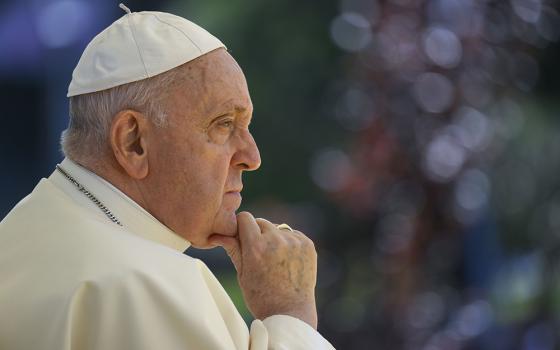Today I will conclude my three-part series of quotes from James Bratt’s Abraham Kuyper: Modern Calvinist, Christian Democrat. I am sure other readers would have highlighted different passages, but the selections I have made touch on themes that regularly fill this blog.
For example, in the chapter entitled “Theologian of the Church,” Bratt explains Kuyper’s resistance to modernizing trends in theology, and his insistence on the core tenets of Calvinism. Bratt writes:
In particular, he did not shy away from warranting the right of God’s “good pleasure” to choose some but not others for salvation. Kuyper meant in general to reprove the out-sized self-confidence that had been building with the nineteenth century’s technological achievements, and in particular to rebuke the self-centeredness of much current Christian spirituality, whether Evangelical, Ethical, or Modernist. In the process he prefigured something of the “wholly other” concept of God promulgated by twentieth-century crisis theology in its equally severe rejection of human pretensions. The fixation upon divine authority also launched his religious thought from the same starting point as the civil politics he was elaborating in Ons Program.
It is remarkable to me that so much of what dominates the commentary on the Church of our own time also reflects a certain self-centeredness, and that this self-centeredness is still found in evangelical, ethical and modernist drag. Remarkable, too, that after the century we humans just foisted upon history and the planet, we still cling to our pretensions.
Kuyper’s thought on predestination were, obviously, not thoughts a Catholic would embrace. But, in the same way that certain Catholic dogmatists fall into a kind of doctrinal fundamentalism, Kuyper warned about how Calvinists handled the doctrine of predestination. Bratt writes:
When thinking about election, he scolded, Reformed people all too often obsessed about the state of their own souls, betraying the very self-centeredness they faulted in Arminians. Their relentless quest to sort out who was and who was not elect arrogated to themselves a judgment that belonged only to God. The consequences were a passivity that fulfilled critics’ prediction about the logic of predestination, an inwardness that contradicted the best lights of their tradition, and an inclination towards despair that constituted Calvinism’s unique contribution to the annals of human pride. Tellingly, for our purposes here, Kuyper labeled this the “holy despair of the sect.” The connectedness wrought by the covenant – to past, to future, to fellows, to task – mandated by contrast a church, a body that risked impurity for the sake of God’s grander purposes.
Do these words not describe perfectly the situation of the Roman Catholic Church today, with Pope Francis urging us to “risk impurity for the sake of God’s grander purposes” rather than make of ourselves a “sect” that is self-centered, arrogant, inclined to despair? I especially like Bratt’s comment on the connectedness of the covenant “to past, to future, to fellows, to task.” The insight may have been Kuyper’s, and it is a profound one, but the writing is Bratt’s and it is splendidly done.
After Kuyper led a schism within the national church, Bratt relates a speech Kuyper gave at the Free University in June 1887, in which we find these words:
The temporizers they had just left behind in the national church were fated to remain priests endlessly trying to atone for the mix of purity and impurity with which their cult of unity diluted the gospel.
The phrase “cult of unity” sticks in my Catholic craw. For starters, the Master did pray “that all may be one,” so the Church is always well advised to keep unity near the top of its priorities and values. That said, an established Church does run risks of entanglement that could, and did, spur Kuyper to this critique. Still, how much more preferable the James Joyce “here comes everybody” quality of a Church that bears the name of Jesus Christ! I include the above quote to demonstrate that one need not be uncritical of Kuyper while admiring him.
In the chapter entitled “Theologian of Culture” we read this:
Typically, however, though nothing in his theory required it, Kuyper tended to deal with individual persons in the context of particular grace. Common grace he associated with structures and collectivities – with the formal institutions of government and culture, for instance, rather than with statesmen or artists themselves. He especially emphasized in this regard the potent if informal sinews of custom, habit, tradition, and public opinion. This reflected his Burkean past but also the communal emphases of his political and social theory the elevation of the organic church in his ecclesiology, even his derogation of soul salvation to the level of means rather than end in his soteriology. In all his theorizing, that is, Kuyper tended to be more concerned with the connections between people, with “the life-relationships of the human race,” than with the persons themselves.
Here we see Bratt’s analytical abilities on full display, but also displayed are the ways Kuyper’s thought worked its way through various fields – political and social theory, ecclesiology, soteriology – in like fashion, with common elements and focus.
This passage just quoted is found on page 202 of a book with 455 pages, 382 of which are text. But, I have gone on long enough, I hope, to demonstrate why you should consider putting this book on your reading list. Kuyper was a giant of a man, who lived at the intersection of faith and culture, always appreciating the demands of both, but never conflating the one with another, and never, never diminishing one iota of his faith and the claims that faith made on his mind and his life. Indeed, it was the strong foundation, and critical function, Kuyper found in his faith that permitted him to be so genuinely original, modern but not a modernist, a democrat in a liberal age with a deep social and communal sensibility, first and last a Calvinist.
It would be wrong to finish this treatment of Bratt’s book without mentioning Kuyper’s most famous quote, uttered in his “sphere sovereignty” speech inaugurating the Free University: “there is not a square inch in the whole domain of our human existence over which Christ, who is Sovereign over all, does not cry: Mine!” All of us, Catholics or Calvinists, must seek to rediscover that insight in our lives and our thought, perhaps not with the comprehensiveness or brilliance that Kuyper brought to the task, but as a check on our willingness to live out the designation “Christian.” It is one of the gifts of Pope Francis that, by word and gesture, he lives this conviction: The environment, the economy, our sexual lives, all of it is not really ours but His. Even our very lives are given to us as if on loan, and there will be a reckoning for how we lived those lives, whether it was for ourselves or for Him. It is this – and ultimately, only this – that distinguishes Christian social and cultural criticism from other flavors. Its absence betrays us as chaplains to the status quo. Its presence, in Kuyper’s life and in our own, can be the occasion for miracles.




